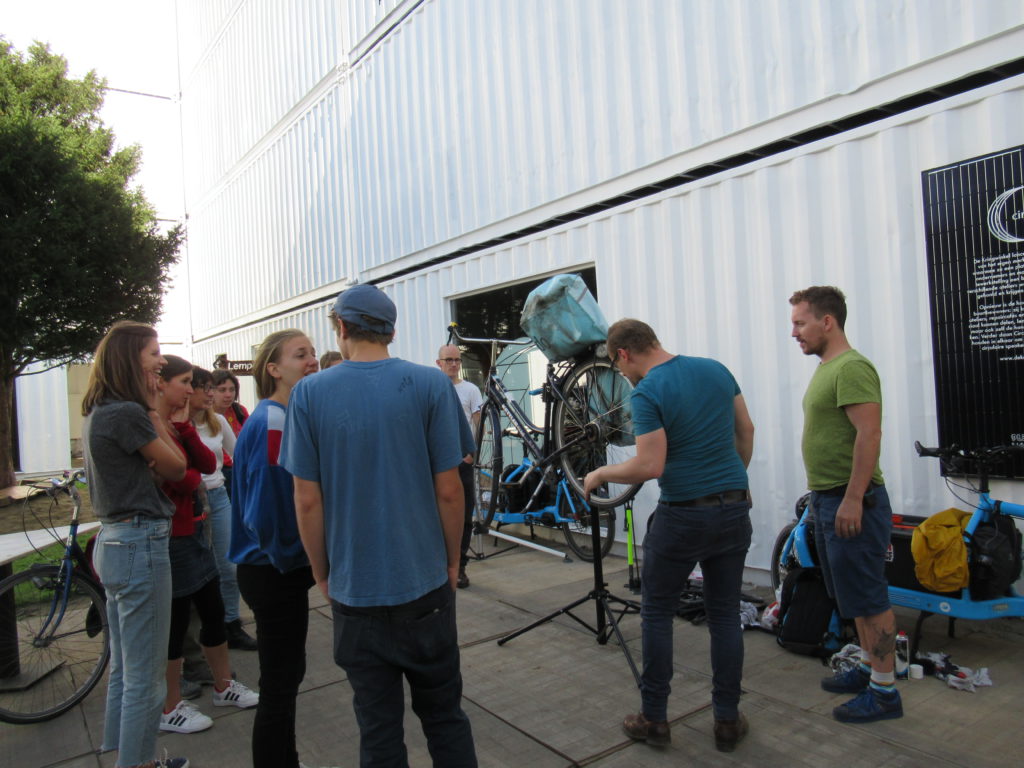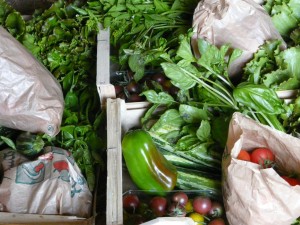The territory of Drome Valley/Val de Drôme, from the Alpes to Rhone’s valley, close to Valence and Montélimart, covers 2 200 sq. m. for 54,000 inhabitants and has long been known as a nest for innovative ways of living. Since the 60s, together with an exponential arrival of neorurals in the last decades, it has seen the emergence of ecological communities such as at Les Amanins, as well as laboratories for new forms of citizens-led democracy, such as in Saillans. Its geography, climate, economy, history at the crossroads of migrations and host to the first French Water Development and Management Scheme (Schéma d’Aménagement et de Gestion des Eaux – SAGE) is not without influence in this process (the report of LPTransition on these questions is particularly enlightening). In particular, alternatives have been prominent in the food sector, and this under the responsibility and leaderships of different groups of stakeholders, some of which are presented here.
Continue readingTag Archives: Sustainable Food
How cities can accompany consumer change practices

Who hasn’t tried to get rid of old habits, whether in relation to the way we eat, sleep, interact with each other, work, travel, or do sports? Who hasn’t ever faced the difficulty of moving away from anchored routines to newly adopted ones? Who has ever struggled to unravel the complexity of the psychological but also social, technological and infrastructure-related mechanisms that make it difficult to transition?
Continue readingLes membres des paniers bio sont-ils tous des « bobos » ?

En réponse aux pressions économiques, sociales et environnementales du système alimentaire actuel, de nouvelles formes d’achat en vente directe de produits alimentaires auprès du producteur émergent depuis les 15 dernières années. Ces systèmes en circuit court proposent un rapprochement de la consommation alimentaire vers la production, tout recréant un lien personnel, direct et de confiance, entre le consommateur et le producteur (Herault-Fournier, Merle, Prigent-Simonin 2012). Ces alternatives prônent une production plus respectueuse de l’environnement, du producteur, dans un souci de développement de l’économie locale, et d’un rapport à taille humaine (Maréchal 2008). Elles proposent de diversifier les points de vente et d’achats de produits alimentaires, et par là-même les choix de produits. Les paniers bio sont un de ces systèmes qui permet à des clients de bénéficier de produits, bio et de saison, provenant directement d’un producteur, de proximité, ou avec un minimum d’intermédiaires. L’origine des produits y est clairement identifiée et transparente et différentes formules d’abonnement et de choix de paniers sont disponibles (Bioguide 2013).
Les membres des paniers bio sont des « bobos ».
Continue readingGoodwill as a vector of social innovations
Pam Warhurst and Joanna Dobson’s book on the Incredible Edible was my holiday book last summer. The wealth and details accounting for stages, encountered difficulties and envisaged solutions soon appeared to be a crucial case to analyse and try and understand the dynamics behind citizens’ movements which seek to improve the world.
Throughout the world, the Incredible Edible movement represents groups of citizens planting in towns and in walking areas, giving free access to herbs and plants to all. These are sometimes rich and beautiful gardens, inviting walker to help themselves, sometimes they seems abandoned. Some people complain about the fact that planting next to the road or in wheels is unpretty and worst for health than products from (conventional) agriculture. All in all, it launches debate and acts for (re) action.
Continue reading
